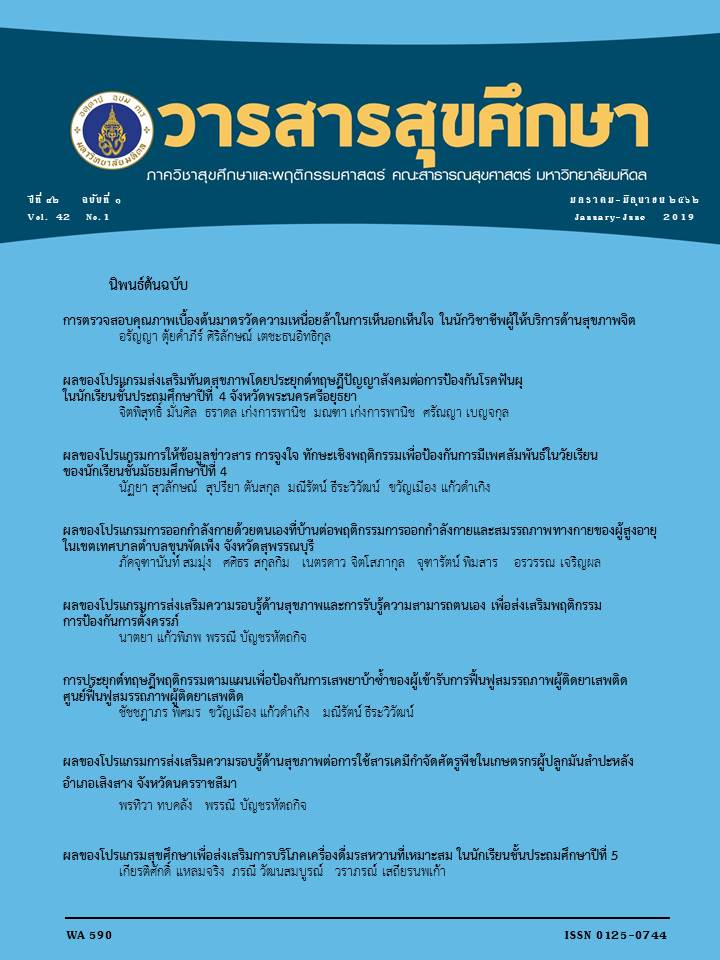The Effects of Dental Health Promotion Program Applying Social Cognitive Theory to Prevent Dental Caries Among Grade 4 Students, Phra Nakhon Si Ayutthaya Province
Keywords:
Dental health promotion program, Social cognitive theory, to Prevent Dental CariesAbstract
According to the survey of oral health problems in Thailand from the 4th to the 7th by
the Bureau of Dental Health, Ministry of Public Health. The situation of permanent tooth decay in
children aged 12 years is slightly better, but the risky behavior of dental caries of this age group
the result of lack of good oral health care for children aged 10-11 years because of the
occurrence of dental caries has a relatively long duration of disease. It is therefore important to
promote oral health care and prevent dental caries for school children aged 10-11 years.
This quasi-experimental research was aimed to study the effects of dental health promotion
program applying social cognitive theory to prevent dental caries among grade 4 students, Phra
Nakhon Si Ayutthaya Province. The research was carried out on 35 students in the experimental
group which participated in dental health promotion program and 34 students in the comparison
group were taught normally. Collecting data were done before and after experimentation by using
self-administrative questionnaire and dental plaque index record. The experimentation operated
for 8 weeks. Data was analyzed by using statistics as percentage, mean, standard deviation, Chisquare test, Paired Sample t-test, Independent t-test, Mann-Whitney U test and Wilcoxon SignedRank Test.
The results showed that after the experimentation, the experimental group had statistical
significantly higher mean score than the comparison group on the following aspects: knowledge
about dental health care and dental caries, perceived self-efficacy for dental health practices,
outcome expectation of dental health practices and dental health care practices (p<0.001). And
the mean score of dental plaque index was significantly lower than the comparison group
(p<0.001). These results showed that dental health promotion program applying social cognitive
theory has an effectiveness to increasing dental health care behaviors and decreasing dental
plaque index of grade 4 students. Therefore, schools with the similar context can apply this
dental health promotion program.



